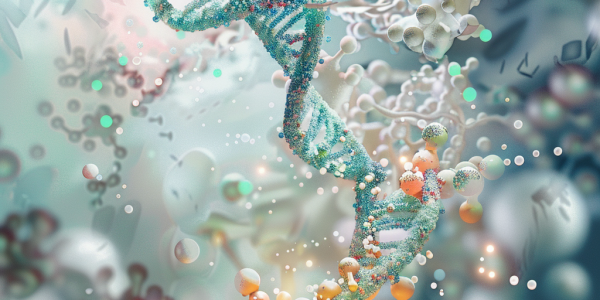Breakthrough in Genetic Research Identifies New Disorder Linked to Protein Folding
Scientists at Washington University School of Medicine have made a groundbreaking discovery linking a rare genetic disorder to a protein folding mutation, providing clarity for families facing long diagnostic journeys. This research not only identifies a new genetic disorder but also highlights the potential for targeted treatments for rare brain disorders, impacting countless individuals and advancing the field of medical genetics.
Controversy Erupts Over Startup Offering IQ Screening for Embryos
Heliospect Genomics, a new startup, offers controversial embryo screening for high intelligence, sparking ethical debates in reproductive technology. With a $50,000 price tag, the service raises concerns about eugenics and access disparities. Experts emphasize the need for ethical regulations as the commercialization of genetic enhancements challenges societal values.
Revolutionary Prenatal Gene Editing Method Shows Promise for Neurodevelopmental Disorders
Researchers from UC Davis and UC Berkeley have developed a groundbreaking method for prenatal gene editing using acid-degradable nanoparticles. This innovative technique targets neurodevelopmental disorders by delivering mRNA into embryonic brain cells, achieving significant genetic modifications with low toxicity. Published on October 28, 2024, the study highlights a promising approach to treat genetic disorders before birth, potentially revolutionizing therapies for conditions like Angelman syndrome and Rett syndrome.
Study Links Plastic Ingredient BBP to DNA Damage and Reproductive Risks
A new study from Harvard Medical School reveals that benzyl butyl phthalate (BBP), a common plastic ingredient, may cause DNA damage and chromosome errors, raising concerns about reproductive health. This research highlights the toxic effects of BBP, commonly found in consumer goods, and its potential to disrupt genetic integrity, emphasizing the need for regulatory scrutiny and further investigation into the health impacts of plasticizers.
Study Reveals Crucial Role of Transposons in Early Human Development
A groundbreaking study by Sinai Health reveals that transposons, previously viewed as harmful genomic parasites, play a crucial role in early human development. Researchers discovered that LINE-1 elements are essential for the normal progression of embryonic cells, challenging long-held perceptions about their function. This research opens new avenues for understanding genetic disorders and therapeutic applications, highlighting the complex role of DNA in human growth.
Navigating Privacy Choices and Advances in Genetic Engineering
Explore the critical balance between user privacy and online functionality in the digital age, alongside groundbreaking advancements in genetic engineering. Learn how essential and optional cookies impact your data privacy and discover the potential of engineered cis-regulatory elements for targeted therapies.
Cleveland Clinic and Cornell Unveil AI Tool PIONEER to Revolutionize Drug Discovery
Researchers from Cleveland Clinic and Cornell University have launched PIONEER, a groundbreaking AI tool that enhances the understanding of protein-protein interactions crucial for drug discovery. This innovative tool aims to streamline the identification of therapeutic targets, accelerating the development of effective treatments for cancer and other diseases. By integrating extensive genomic data and 3D protein structures, PIONEER represents a significant advancement in health informatics and personalized medicine.
Breakthrough in Gene Editing: Targeted In Vivo Treatments Show Promise for Genetic Disorders
Recent advancements in gene-editing therapies are revolutionizing treatment for genetic disorders. Researchers at UT Southwestern have developed lipid nanoparticles for in vivo gene editing, showing promising results in correcting mutations linked to cystic fibrosis. This innovative approach could lead to one-time treatments that eliminate the need for complex procedures, offering hope for various genetic conditions.
Scientists Reconstruct 10,000-Year-Old Genome, Unveiling Ancient African Cultures
Scientists have reconstructed a 10,000-year-old genome from southern Africa, revealing insights into ancient human cultures and their coexistence with pastoralist societies. This landmark study, published in Nature Ecology & Evolution, emphasizes the importance of genetic research in understanding human evolution and migration patterns, particularly through the analysis of genomes from the Oakhurst rock shelter. The findings illuminate the connections between ancient populations and modern inhabitants, enriching our knowledge of southern Africa’s diverse history.
New Research Reveals Evolutionary Adaptations in Human Starch Digestion
Recent research reveals how early humans adapted to diets rich in starch through the evolution of amylase genes. Studies show two significant waves of genetic adaptation linked to cooking and agriculture, highlighting the relationship between diet and health. Understanding these adaptations can pave the way for future medical advancements and better nutritional practices.










